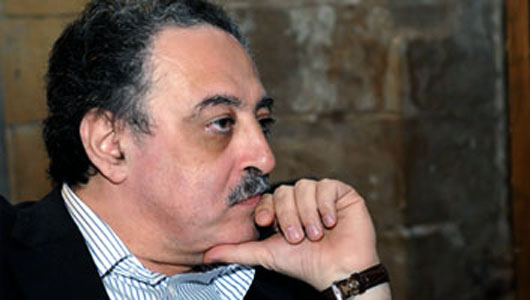PARIS/CAIRO: Wheat exporters hope new import terms by Egypt will lend more predictability to the tender process in the world s largest wheat importer following a quality row that led Cairo to tighten oversight.
The Egyptian authorities say changes this year to quality criteria, cargo sizes and inspection procedures in international tenders will put all exporters on an equal footing, an idea welcomed by operators scarred by months of uncertainty over trading conditions.
Wheat imports by the most populous Arab country have been mired in controversy since the seizure in May of Russian wheat on quality grounds, the first in a string of wheat seizures.
Most were eventually released into Egypt.
The imports support a bread subsidy program that helps millions survive on low income and wards off political unrest.
The wheat quality issues prompted Egypt to tighten its rules, though Trade Minister Rachid Mohamed Rachid told Reuters the country was enforcing existing terms, not adding more.
Changes have included a requirement for 55,000-60,000 ton cargoes only, rather than 30,000-ton ships often seen from Russia, and for consignments to be loaded at one port only.
We wanted to unify the amounts we were asking for all the origins so that they are all on equal footing, Nomani Nomani, vice chairman of state wheat buyer GASC, told Reuters.
European traders said the overhaul of import procedures was partly a move by GASC under the recently appointed Nomani to show it had taken firm action after the Russian wheat saga, and also an effort to make the tenders more competitive.
Egypt s latest tender saw closely matched offers from several origins, with GASC buying French, Russian and a rare cargo of German wheat.
Headache for Russia
Everyone was looking for something to happen and it happened (with the Russian wheat) and it s probably a good thing because it will clean up the show a bit, Geneva-based Agrinews analyst James Dunsterville said of the shakeup in the tenders.
For the Egyptian business … basically it s now a competitive market again, he said on the sidelines of last week s Global Grain 2009 conference.
European traders agreed there was a need to tighten up the tenders and welcome potentially greater transparency in measures such as inspector visits to ports of origin, despite costs and doubts over how rules will be applied.
This will have a cost but it s clear we have nothing to fear from the presence of inspectors, Jean-Philippe Everling, head of French trading firm Granit, said.
Everling told Reuters a bigger expense would come in the demand to load 55-60,000 ton shipments at a single port, which would rule out France s top grain port, Rouen.
It s up to us to be aggressive, even to the extent that the seller absorb the difference in freight costs between loading in one port or two, he added.
Russian traders were less optimistic about the immediate outlook in the light of the dispute over Russian wheat and a limit of 1 percent bug damage in tenders, which would rule out most grain from Russia and fellow Black Sea producer Ukraine.
Russia dominated wheat shipments to Egypt last season, claiming some 4 million of the 5 million tons bought by GASC. But shipments have slowed since May, helping an upturn in French exports since the start of the 2009/10 campaign on July 1.
The new limit of 1 percent bug damage, compared to 2 percent previously accepted by GASC, was dismissed by Russian operators as unnecessary, especially given a higher tolerance level used by private Egyptian importers who buy in parallel to GASC.
(GASC) are limiting their range of suppliers, one Russian trader said. Everyone (in Egypt s private trade) buys wheat at 2 percent bug damage, makes flour with it and is satisfied.
Russia s largest grain trader, RIAS Trading, remains a notable absentee from GASC s tenders as it pursues legal action over the seizure of a wheat cargo.
The tighter bug damage limit illustrated the unclear conditions dogging Egyptian tenders, Chris Vanhonacker, RIAS commercial director, said on the sidelines of Global Grain 2009.
It s these kinds of impossible, unrealistic terms that have nothing to do with food safety that have screwed up Egypt.


